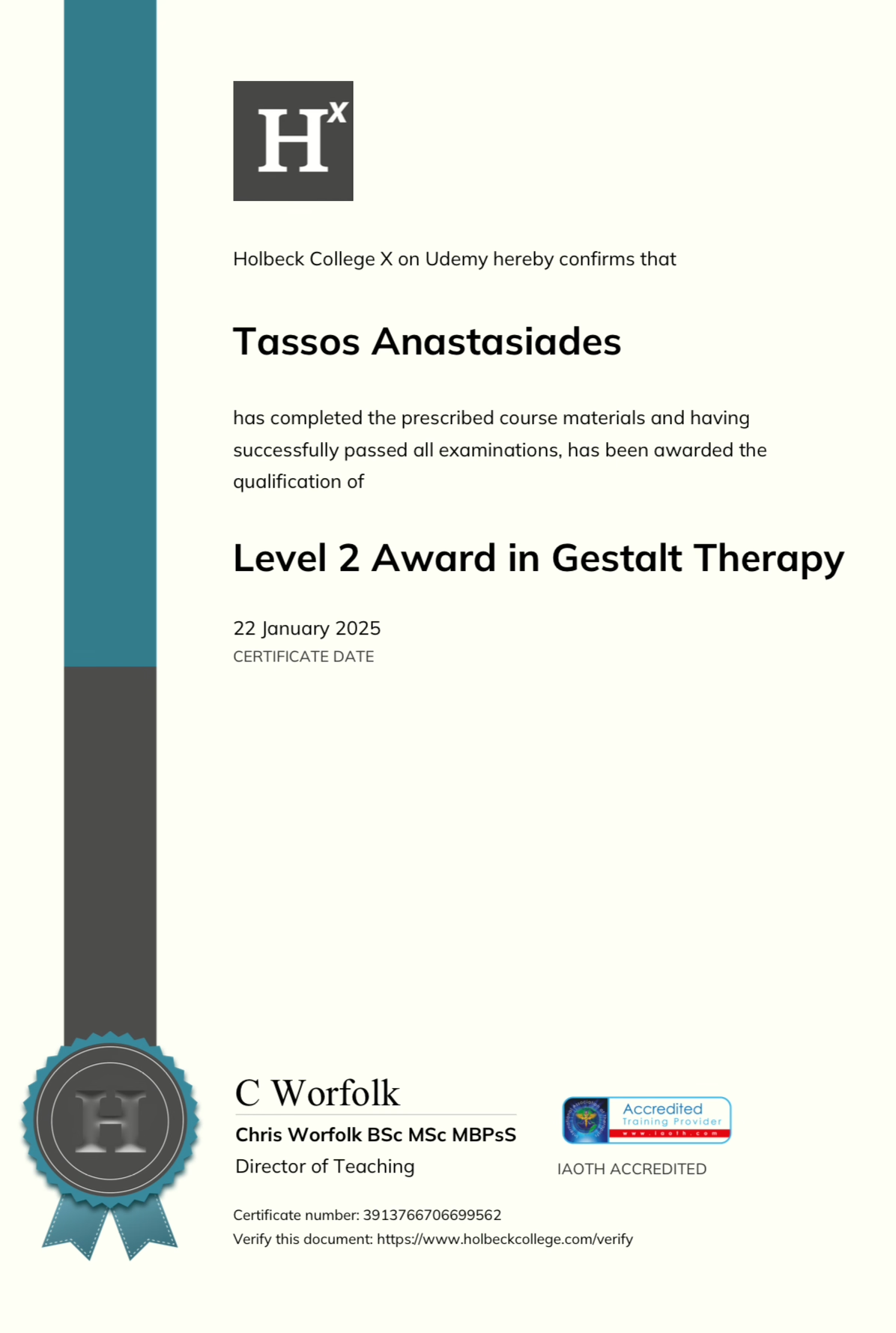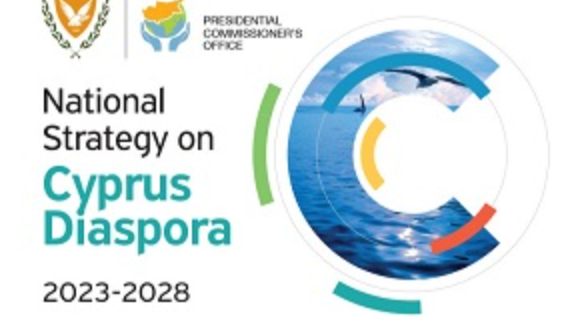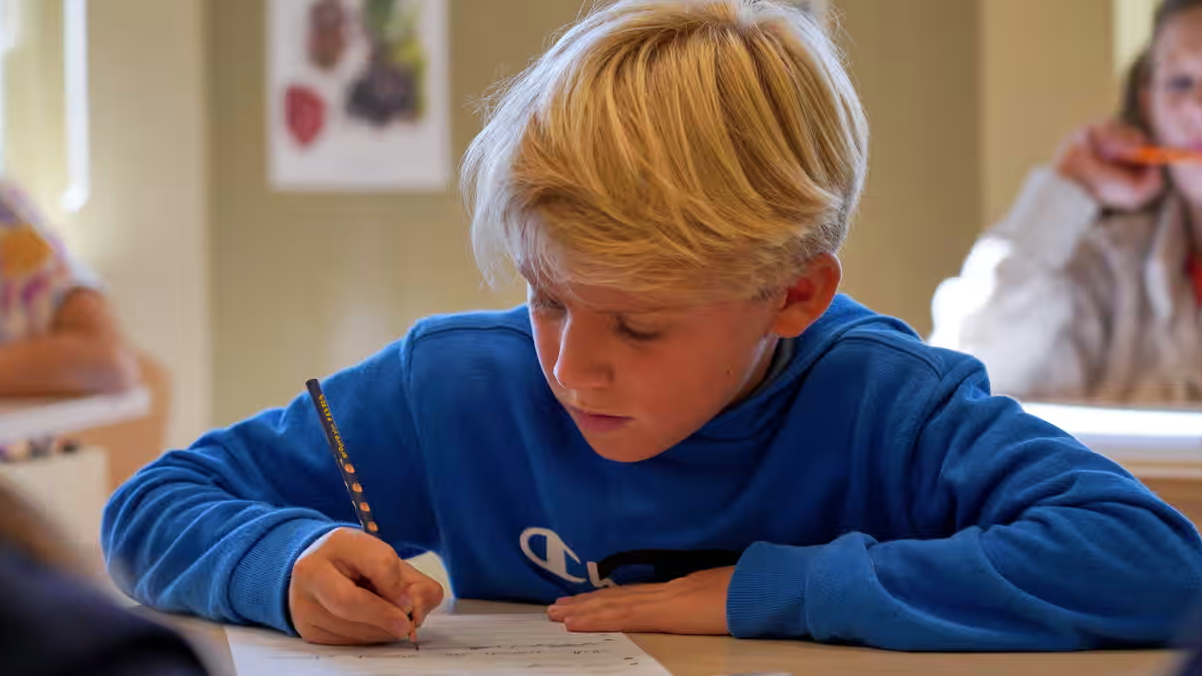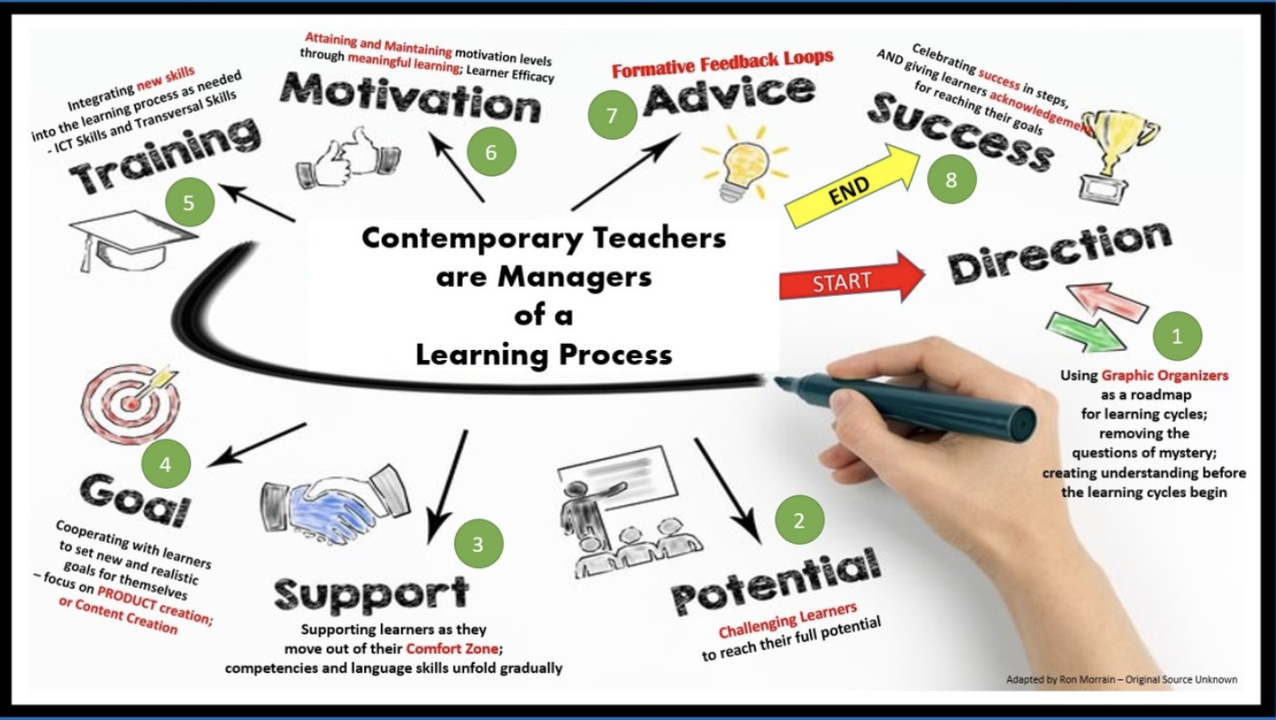I am delighted to share that I have recently completed my certificate in Gestalt Therapy, a journey that has profoundly influenced my approach to educational leadership. Immersing myself in the principles of Gestalt Therapy has not only enriched my personal development but has also provided invaluable insights into leading a school community with greater awareness, empathy, and effectiveness. This newfound perspective emphasises the importance of being fully present, understanding the interconnectedness of experiences, and fostering an environment where every individual’s contribution is valued. I am excited to explore how these principles can benefit school leaders and transform our educational spaces into vibrant communities of growth and learning.
Embracing Wholeness: A School Leader’s Journey with Gestalt Therapy
Dr Emily Clarke had always been dedicated to education. As the newly appointed headteacher of Horizon Secondary School, she faced numerous challenges—disengaged students, overburdened teachers, and a community losing faith in its education system. Despite her extensive experience, Emily felt something was missing in her leadership approach.
One evening, while exploring her late mentor’s collection of books, she stumbled upon a volume on Gestalt Therapy. Intrigued by its holistic and present-focused philosophy, she delved deeper. Gestalt Therapy, she discovered, is a form of psychotherapy that emphasises personal responsibility and awareness of one’s experiences in the present moment. It encourages individuals to understand their emotions, thoughts, and actions as parts of a greater whole.
As Emily immersed herself in the principles of Gestalt Therapy, she began to reflect on her leadership style. She realised that she often concentrated too heavily on exam results and administrative tasks, losing sight of the immediate needs and potentials of her students and staff. She was addressing issues in isolation rather than recognising the interconnectedness of the school’s ecosystem.
Inspired, Emily decided to transform her approach:
- Cultivating Self-Awareness: She started by examining her own perceptions and biases. Being fully present allowed her to notice how her stress influenced her interactions. This heightened self-awareness enabled her to respond thoughtfully rather than react impulsively.
- Enhancing Communication: Emily initiated open forums where teachers and students could share their experiences without fear of judgement. She fostered honest dialogue, emphasising that every voice mattered. This nurtured a culture of trust and transparency.
- Adopting a Holistic Perspective: Recognising that each member of the school community was part of a larger whole, she began to see patterns. For example, a student’s disruptive behaviour was not merely a disciplinary issue but a signal of deeper emotional needs.
- Promoting Personal Responsibility: She empowered her staff and students to take ownership of their actions. By highlighting how each person’s choices impacted the wider community, individuals became more accountable and motivated to contribute positively.
- Facilitating Growth and Integration: Emily implemented programmes that integrated emotional well-being with academic learning. Mindfulness sessions, collaborative projects, and community service became integral parts of the curriculum.
The effects were remarkable. Teachers reported feeling more connected and valued. Students became more engaged, showing enthusiasm not just in academics but in extracurricular activities and community events. The school transformed from a place of mere instruction to a vibrant community of learning and growth.
Benefits for School Leaders:
- Enhanced Self-Awareness: By understanding her own emotions and behaviours, Emily became a more empathetic and effective leader. Self-aware leaders can better navigate the complexities of school administration and foster a positive environment.
- Improved Relationships: The emphasis on authentic communication strengthened relationships between staff, students, and the broader community. This led to increased collaboration and a more cohesive school culture.
- Holistic Decision-Making: Viewing the school as an interconnected system enabled Emily to make decisions that considered the well-being of all stakeholders. This holistic approach can lead to more sustainable and impactful outcomes.
- Empowered Teams: Encouraging personal responsibility empowered teachers and students to take initiative. Empowered teams are often more innovative, motivated, and committed to the school’s vision.
- Effective Problem-Solving: Understanding the root causes of issues, rather than just addressing symptoms, allowed Emily to tackle challenges more effectively. This proactive approach can save time and resources in the long run.
Conclusion
Dr Emily Clarke’s journey illustrates how the principles of Gestalt Therapy can enrich educational leadership. By focusing on the present moment, embracing the interconnectedness of experiences, and fostering a culture of awareness and responsibility, school leaders can inspire meaningful change.
Implementing Gestalt principles helps school leaders:
- Develop Greater Self-Awareness: Enhancing emotional intelligence leads to more mindful interactions and decision-making.
- Build Stronger Relationships: Authentic communication fosters trust and collaboration among staff and students.
- Create Positive School Cultures: Emphasising holistic well-being nurtures an environment where everyone feels valued and included.
- Enhance Problem-Solving Skills: Understanding the broader context enables leaders to address underlying issues effectively.
- Foster Community Empowerment: When individuals take responsibility, the collective efficacy of the school community strengthens.
By embracing the wholeness of experiences, school leaders can navigate the challenges of modern education and cultivate schools where both students and teachers thrive.








